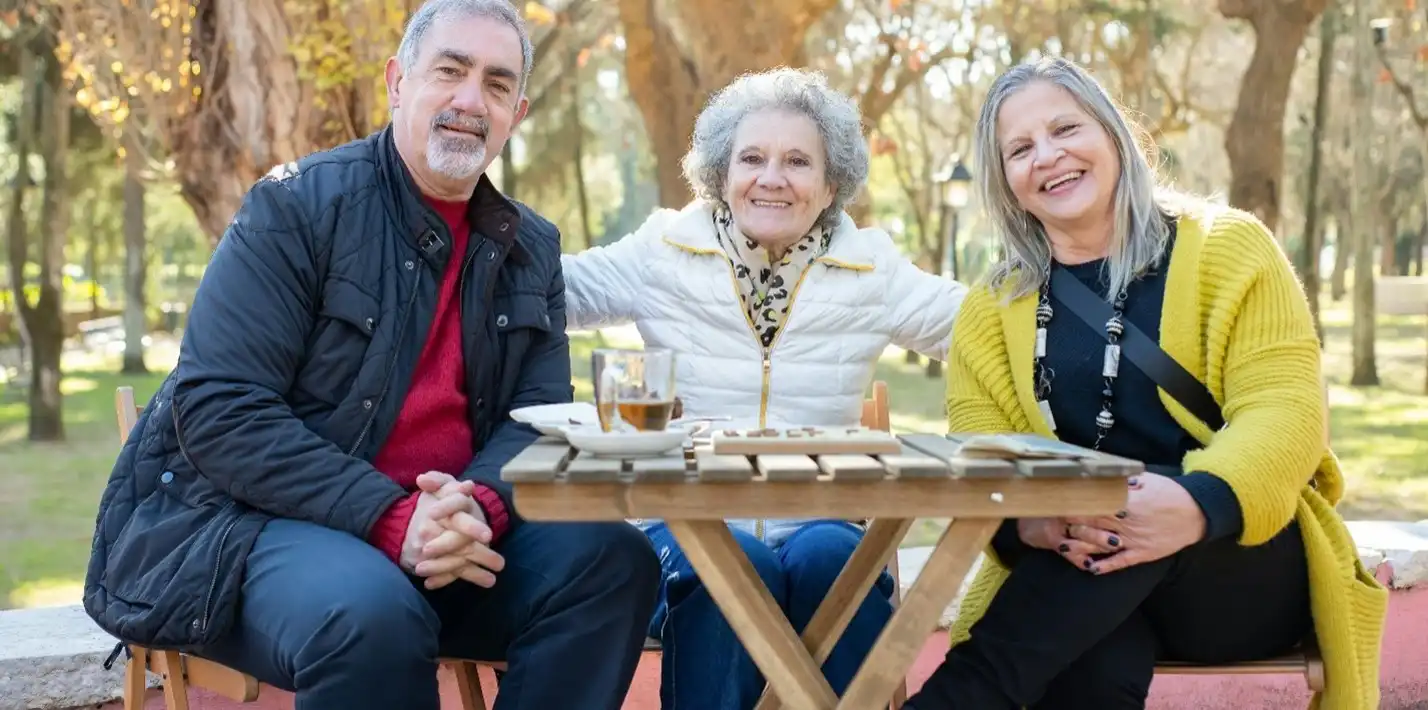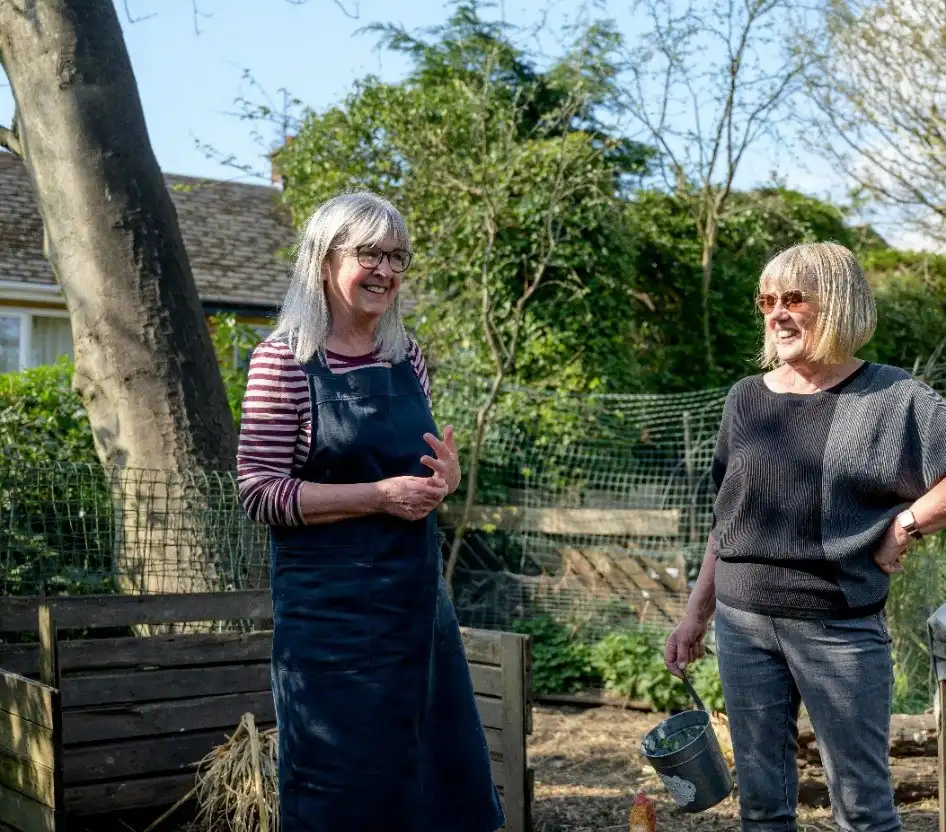
Many people talk about living in a retirement community at some point in their post-retirement journey.
But what’s out there for middle-income seniors who (a) aren’t positioned to pay a fortune for housing, and (b) don’t need constant nursing care? Some seniors, looking for a frugal and socially appealing alternative to life plan communities, opt for co-op living.
Life at a Senior Co-op: The Highlights
Amenities are great to have, and co-ops do have them. But for many seniors, independence with the support of their peers is the key point.
Co-ops are owned collectively by their members, who elect boards. As with condos, committees help the boards with social, financial, and maintenance planning. Most co-ops hire management and landscaping firms to care for their properties.
People choose co-ops for location, price, relationships, and activities. They like the idea of being active with others through their later years.
They also like the idea of holding a share in the co-op, which finances it. They like the opportunity to benefit from rising real estate equity. (This is in contrast to a life plan community, which rents the units.)
Minnesota: Home to 60% of U.S. Senior Co-ops

Senior co-ops started off in Minnesota. To this day, Minnesota has the majority of these offerings, and they’re in high demand.
Back in the 1970s, retired residents were challenged by the work of home maintenance as they aged. Could there be a way to age in place, autonomously, with upkeep services provided, yet no need to pay for unwanted services?
The first senior co-op was a 338-unit building in Edina. The idea took off.
Most co-ops today are in Minneapolis and Saint Paul. At least two dozen co-ops exist in rural Minnesota, too.
Buying and Owning Senior Co-op Shares: Some Challenges
What are the challenges in this housing segment? Let’s look at the main ones:
- There are waiting lists. Seniors are placing dibs on many of these places a decade before they’ll need them. Surprise, right? All housing markets are dealing with elevated interest rates and stalling construction.
- If you want to buy into a co-op, you’ll need a mortgage firm that works with share loans. This type of loan is not accessible through many government-backed mortgage offerings.
- The appraisal won’t be the same as the process of evaluating a condo. Valuation is different. Co-ops can put limits on selling prices. Great for buyers, but co-op residents can’t expect surging, condo-style home equity gains.
Senior co-ops, we must say, are not for all seniors. While they can offer meals, shuttles, and housekeeping services, they’re still mainly serving residents who live independently.
When a Co-op Would Be Perfect…How Do Seniors Buy In?
It’s a lot like general real estate. Buyers can find co-ops in the listings. They can make their offers, and negotiate.
But unlike regular real estate ownership, in most states, a buyer will not get the deed. The stock certificate (proprietary lease on a specific home space) held by the buyer is not technically real estate, but rather personal property. The co-op holds the master deed and mortgage. It owns the building and grounds — and usually it owns the appliances, flooring, and windows.
The lender will want to be sure the title is clear. Liens — either against the co-op, or the seller’s share — need to be satisfied. (Buyers get co-op insurance as protection from title defects.)
Expect to devote a good bit of time to the process. Even if there’s no waiting list, there’s always a wait to get into a co-op. And lenders will have to wait with the buyers. This is because the co-op board usually has an approval process for new entrants.
How Much Does a Co-op Cost These Days?
Expect a co-op to ask for a large down payment. When you buy a share in a co-op, you normally chip in half the total value of the living space up front.
In addition to closing costs, be prepared to fund the community cash reserves. Then there are the monthly dues. Each member kicks in a share of the master mortgage and interest — which becomes a tax deduction. Dues also cover real estate taxes, the member’s share of insurance costs, and their portion of operating and upkeep costs.
A good ballpark figure for monthly co-op dues might be around $3,000 a month for 1,500 square feet, if you take Minnesota figures as an example. That’s steep. But it takes care of everything, including property taxes and community utilities.
Best wishes in your co-op research and decision-making! Please note: This is not legal or tax guidance. Make your investment decisions only after due diligence on the property, with situation-tailored guidance from licensed professionals.
Supporting References
Minnesota Now with Angela Davis: Minnesota Is Home to More Than Half of Senior Co-op Living in the Country. Here’s Why (on Minnesota Public Radio, interviewing Dennis Johnson, chair of the Senior Cooperative Foundation, Shoreview, Minnesota on July 23, 2024).
Laura Boast for Moneywise.com: I’m 72 and a Widower Looking for a Retirement Community in Kansas to Be Closer to the Grandkids, But Don’t Want to Pay Through the Nose. Would a Senior Co-op Be a Good Move Financially? (updated Mar. 21, 2025; also citing Dennis Johnson).
Deeds.com: Owning a Co-Op – Different From Traditional Real Estate? (Oct. 24, 2019).
And as linked.
More on topics: Seniors rush to retirement housing, Common deed mistakes seniors make
Photo credits: Kampus Production, via Pexels/Canva; and Centre for Ageing Better.
